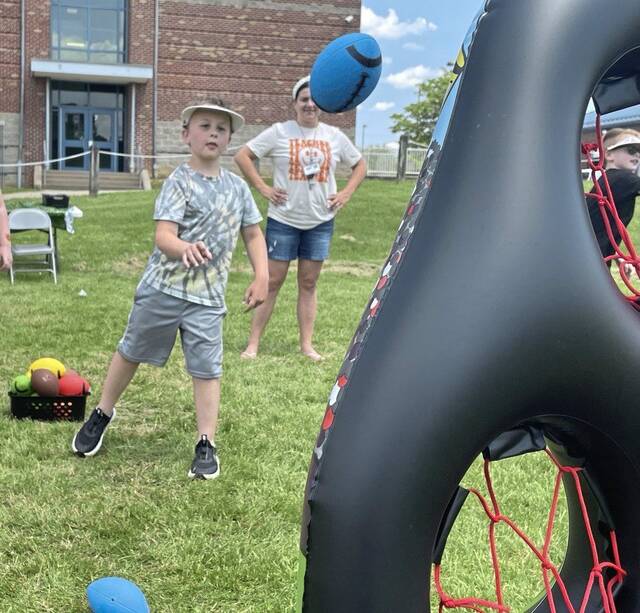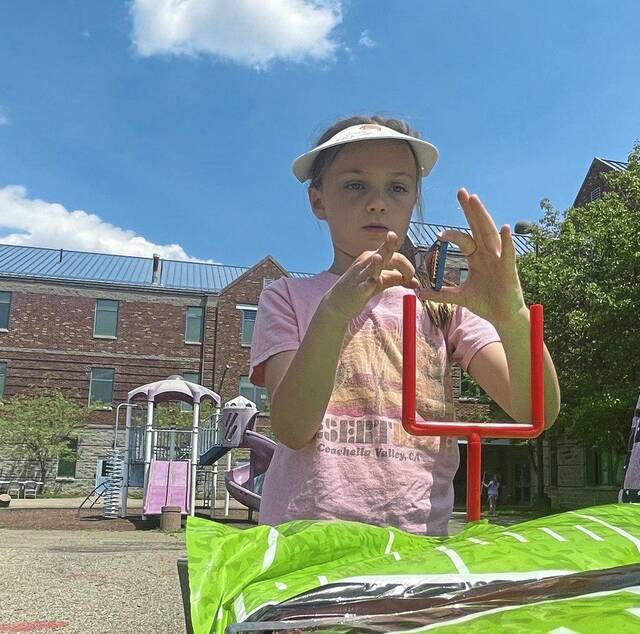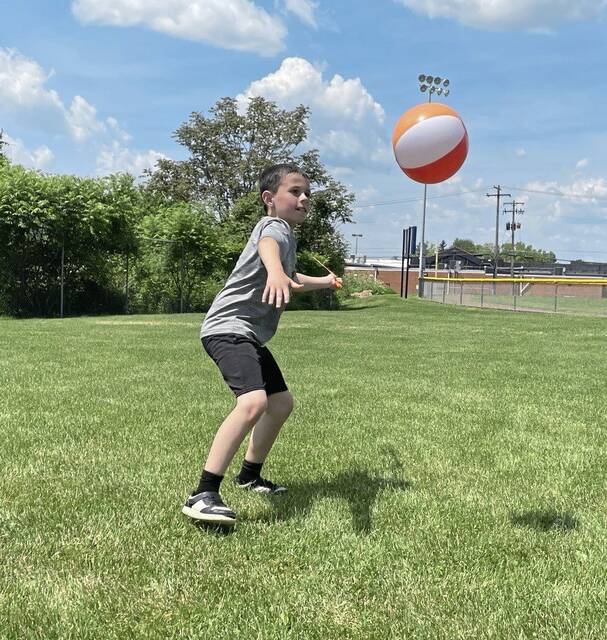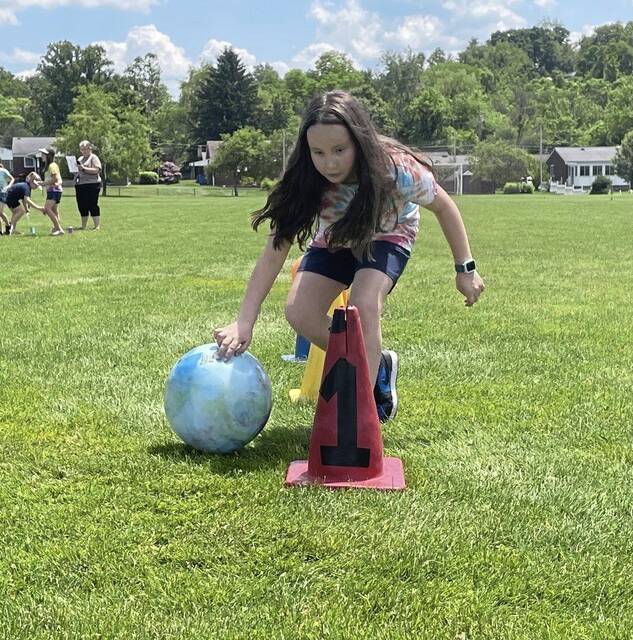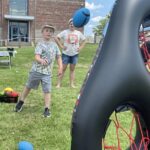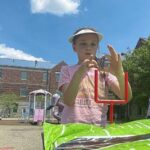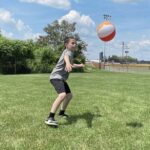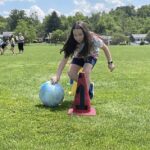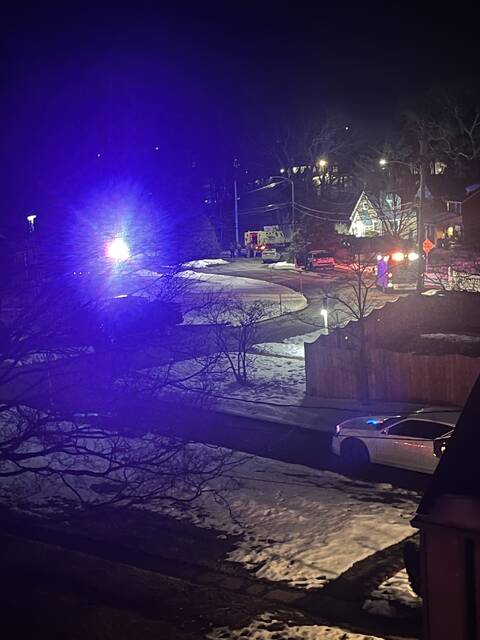Eight-year-old Hannah Woch has a stack of chapter books she plans to read this summer.
It’s important to read over the summer, said Hannah, a student at Bon Air Elementary School in Lower Burrell.
“Now that I’m reading, I understand more stuff,” she said.
With the school year concluding in districts nationwide, educators are placing an emphasis on summer reading and continued learning during the months when students are out of school.
Research indicates that students who don’t engage in educational activities during the summer can lose up to two months of reading skills, according to Khirsten Scott, a University of Pittsburgh professor who specializes in language, literacy and culture.
“The summer allows a unique possibility to a different access point to learning and access to reading,” Scott said.
Is technology to blame?
A Common Sense Media report shows children and teenagers spend an average of more than seven hours a day on screens — excluding time spent on schoolwork.
Other studies find that higher levels of social media use are associated with lower academic performance, particularly in reading comprehension and vocabulary.
However, experts say advancements in technology and social media can actually promote literacy, when used appropriately.
“When used intentionally, social media can enhance critical literacy skills and foster social change,” Scott said.
Scott also is co-founder of HYPE Media, a Homewood- based youth digital literacy project. In that program, students work on projects that involve reading, writing and digital media production to address social issues and encourage them to be active in their communities.
“While it is crucial to mitigate the negative impact of excessive technology use, we must also leverage the potential of social media and community connections to inspire and engage students,” Scott said. “By meeting students where they are and connecting their learning to their lives and communities, we can foster a more literate and critically engaged society.”
Over time, technology has progressed. She recalled that when she was growing up, a common phrase was that too much TV or video games would hinder a student’s education and ability to learn.
“Each affordance of technology has provided a new set of challenges to how we learn,” Scott said.
The conversation about technology and learning is nothing new, she said, noting recent advancements, such as social media and artificial intelligence, can accelerate challenges in education if society doesn’t keep up.
“It’s a more expansive, thorough technology not previously explored,” she said. “With saying that, the answer is not to disengage.”
Access is key
Like many schools nationwide, Bon Air Elementary held a weeklong kickoff to its summer reading challenge, capped with a field day May 24.
The school provides each student with three grade-level books to read over the summer, said Alicia Rupert, a personalized learning coach at Bon Air. When students return in the fall, the school offers a tiered-system of rewards for how many books a student read.
Rupert said the initiatives get students excited about reading.
“We started this years ago,” Rupert said. “We had noticed there was learning loss over the summer, so we started this program to get students excited about reading.”
One factor of learning loss, she said, is that students don’t get consistent, repetitive practice over the summer that they normally do during the school year.
“We explain to parents that summer learning loss is typical — it does happen. So we’re trying to provide opportunities to eliminate some of that,” Rupert said. “With the summer, if you don’t use it, you lose it.”
Julie Ankrum, an education professor at Indiana University of Pennsylvania, recommends an individualized approach to ensure students are reading to their ability and what they’re interested in. She noted there are challenges to some families where they may not have access to books or libraries or someone in the household who is illiterate, which would contribute to an achievement gap among students.
“Getting books in hands of families and kids is key,” Ankrum said.
School-based summer reading programs, like the one at Bon Air, can be beneficial in that they provide access to books, Ankrum said.
While rewards and initiatives for summer reading may help some students, the real task is giving children access to books they love to read and creating meaningful reading experiences with children, Ankrum said.
“Find that book that hooks them into reading,” she said. “For children who excel, find those books they enjoy and continue to talk about what they’re reading.”
State of literacy scores
Scott cited recent data from the National Assessment of Educational Progress, which, she said, revealed a “concerning decline in literacy rates” with drops in reading scores for fourth and eighth graders.
According to NAEP, in 2022, the average reading score at both fourth and eighth grade decreased by 3 points compared to 2019.
The average reading score for fourth grade, 217 out of 500, was lower than all previous assessment years going back to 2005 but wasn’t significantly different in comparison to 1992.
Average reading scores for eighth grade — 260 out of 500 — was lower compared to all previous assessment years going back to 1998 but also wasn’t significantly different compared to 1992.
Ankrum noted the longstanding body of research that students who struggle with reading are more likely to miss out on future educational achievement.
NAEP scores from the early 1970s until now show very little change in overall reading scores, Ankrum said.
The past 20 years saw a very gradual rise in scores until they leveled off in 2013, “about the time that legislation concerned with foundational skills, and subsequent adoption of scripted reading programs, began to take hold around the country,” she said.
A tailored, individualized approach to summer reading for children delivers much better results than a “one-size-fits-all scripted program,” Ankrum said.
The largest drop in reading scores since 1990 occurred between 2020 and 2022, Ankrum said, during the pandemic. Still, the average score during the pandemic period is higher than those in the early 1970s.
“One contributor to this confusion is NAEP’s terminology,” Ankrum said. “The media has misinterpreted the term ‘proficient’ as reported by NAEP, claiming that 65% or two-thirds of fourth graders in the U.S. cannot read.
There, unfortunately, is not a clear definition for ‘proficiency’ in NAEP scores. But what we do know is that when a student scores in the ‘basic’ range on NAEP, this is closer to meeting grade level expectations than proficient is.”
Collective energy toward literacy
Intentional, community-based initiatives can make a positive impact on literacy outcomes, Scott said. She referenced the Western PA Writing Project, of which she also serves as director.
“At the core of the (National Writing Project) and (Western PA Writing Project’s) philosophy is the belief that reading and writing are deeply interconnected processes,” Scott said. “The adage ‘readers write and writers read’ connects well with our approach, recognizing that strong readers often develop into strong writers and vice versa.
“By engaging in written expression, students improve their comprehension and analytical skills, which enhances their reading abilities. Conversely, reading diverse texts exposes students to different styles, vocabularies and ideas, which enriches their writing.”
A summer Young Writers Institute camp at Pitt is another example.
“These community-centered camps are powerful in building relationships and camaraderie while developing literacy skills,” Scott said. “Students will have the opportunity to explore various forms of writing, from traditional essays and creative stories to digital storytelling and social media campaigns.”


